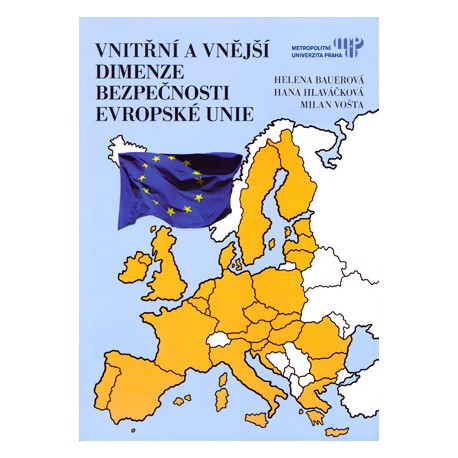No products
Data sheet
| Author | Bauerová, Helena; Hlaváčková, Hana; Vošta, Milan |
| Year of publication | 2018 |
| Publisher | Libri, Metropolitní univerzita Praha |
| ISBN | 978-80-87956-89-2 |
| Print run | 100 ks |
More info
The study of the EU`s internal and external security has generally been separated since its creation (early 1990s). The research focused on two security areas emerging from the Maastricht temple. The European Union has responded to the internal threats associated with the dismantling of border regimes and the formation of the internal market in setting up the pillar structure. Tt the same time, the EU styled itself into the role of a regional organization striving to carry out foreign-security activities beyond its borders. The reality of the EU`s policies as well as the international system led to the communitarisation of a part of internal security in 1999. Consequently, after the abolition of the pillar structure, the differences between internal and external security begin to approach. in addition, the EU has gained the possibility of implementing a more active policy vis-vis third countries by gaining legal personality. The presented book responds to new realities linked to the threats of terrorism, migration and energy security, and this demonstrates how the European Union and the Member States do not/cooperate in the field of internal and external security. The aim of individual chapters is to show that today it is not possible to talk about the EU`s internal and external security separately. On the contrary, they are interconnected vessels, whose differences are getting smaller. These facts demonstrate the chapters on the transformation of foreign missions and the change in the perception of the fight against terrorism. also the purely intra-European Frontex agency has acquired powers that can be implemented in cooperation with third countries. Important is the relationship of the EU and third countries, which affects internal and energy security. From the point of view of the interdependence of internal and external security, the European Union has increasingly projected security interests abroad. Links to third countries are and will be an indispensable aspect of building European internal security.


